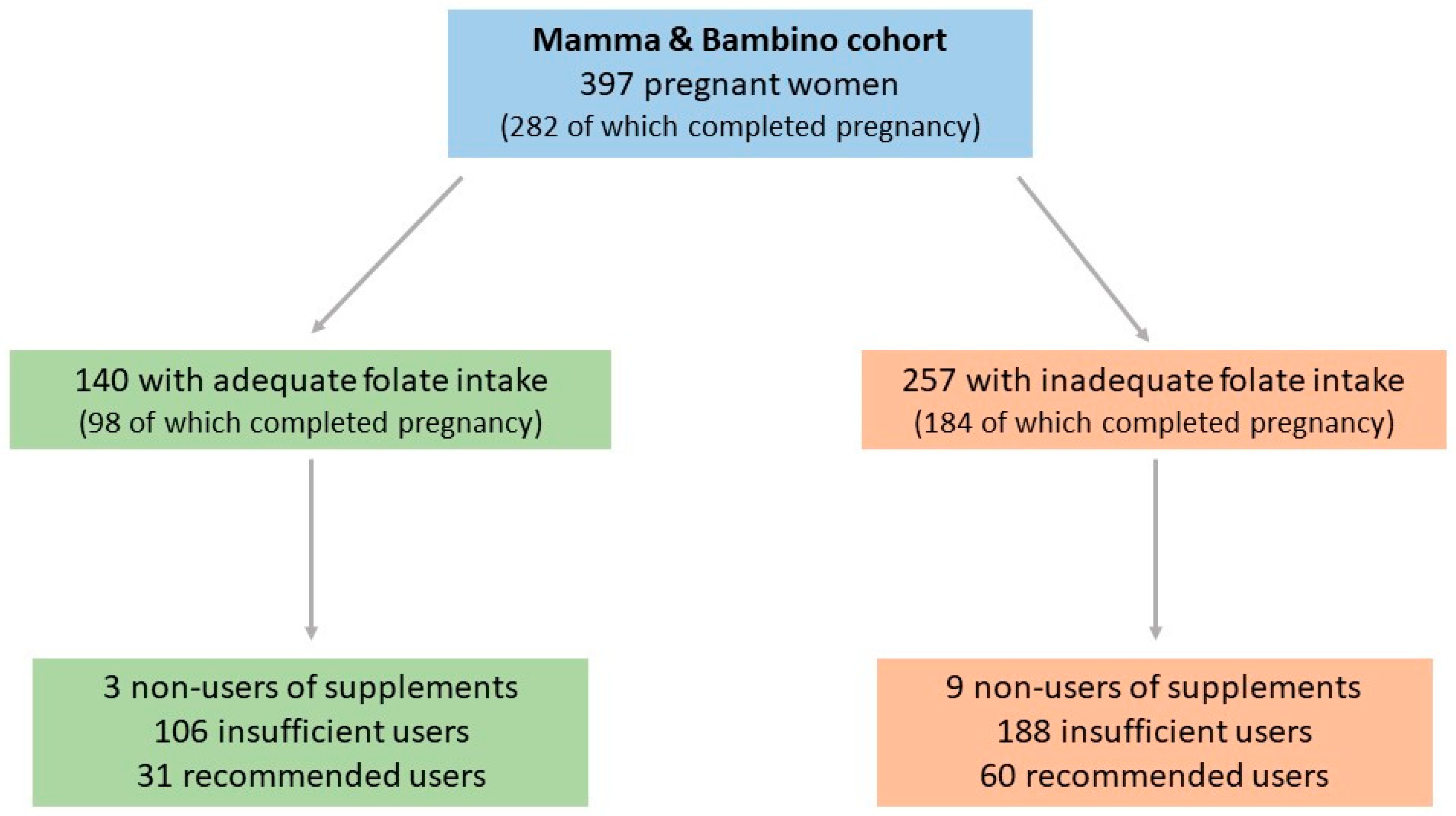Daily Recommended Intake of Folate for Women Pregnant Women and Lactating Women The National Institutes of Health outlines recommended daily folate intake in micrograms mcg. Recommended Folate Intake During Pregnancy.
 Folic Acid Supplementation For The Prevention Of Neural Tube Defects Recommendation Statement U S Preventive Services Task Force American Family Physician
Folic Acid Supplementation For The Prevention Of Neural Tube Defects Recommendation Statement U S Preventive Services Task Force American Family Physician
2 Carbohydrates should comprise 45-64 of daily calories and this includes approximately 6-9 servings of whole grain daily.

Recommended folate intake pregnancy. The difference is that folate is found naturally in foods while folic acid is a synthetic supplement added to fortified foods. 500 mcg Recommended folate intake increases during pregnancy and breastfeeding to fuel rapid growth and help prevent neural tube. It is also recommended that you take a daily vitamin D supplement.
The amount of thiamin adults aged 19 to 64 need is. Although most people consume adequate amounts of folate certain groups including women of childbearing age and non-Hispanic black women are at risk of insufficient folate intakes. All pregnant women should take get at least 600 micrograms mcg of folic acid daily according to The American College of Obstetricians and.
Folate requirements increase substantially in pregnancy so women should aim to consume at least 600 mcg of folate from their normal daily diet. In addition to dietary folate intake from a varied diet all women who can become pregnant should take a multivitamin 4 containing 400 mcg 04 mg of folic acid every day. Folic acid protects unborn babies against serious birth defects.
In addition to eating foods that are rich in folate if you are planning a pregnancy or are in the early stages of pregnancy the first three months or first trimester you should take a daily supplement containing 05 mg of folic acid. If you can get pregnant or are pregnant folic acid is especially important. However women with a previous pregnancy affected by a neural tube defect NTD are recommended to take 4000 microgramsd of supplemental folic acid when planning a.
Generally when trying to get pregnant or in the early months of pregnancy you will need to look for supplements that contain at least 400 micrograms of folic acid. The Institute of Medicines Food and Nutrition Board of the National Academy of Sciences recommended that all women who can become pregnant get 400 mcg of folic acid each day in addition to consuming food with folate from a varied diet to lower the. The recommended intakes vary between 200-300 microgramsd men and 170-300 microgramsd women.
Higher folate requirements during pregnancy and lactation are difficult to meet by increased intake of folate-rich food products only. 400 micrograms of folic acid every day from before youre pregnant until youre 12 weeks pregnant This is to reduce the risk of problems in the babys development in the early weeks of pregnancy. You can get folic acid from vitamins and fortified foods such as breads pastas and cereals.
Recommended protein intake during pregnancy is 60gday which represents an increase from 46gd in non-pregnant states. In other words this increase reflects a change to 11g of proteinkgday during pregnancy from 08g of proteinkgday for non-pregnant states. This reduces the risk of neural tube defects Van Allen et al 2002.
These will generally be supplements that contain only folic acid or special pregnancy supplements. Folic acid and folate are forms of a water-soluble B vitamin that helps the body make healthy new cellsWomen who are pregnant or might become pregnant take folic acid to prevent miscarriage and birth defects. Its recommended that you take.
An adequate intake of folate during pregnancy lactation and infancy is essential for maternal and child health and normal growth. PRIs ranging from 120 µg DFEday for 13 year-old children to 330 µg DFEday for boys and girls aged 1517 years are derived. Folate is found naturally in foods such.
Average daily intakes of folate from food are 602 mcg DFE for males aged 20 and older and 455 mcg DFE for females. For pregnant women an AI of 600 µg DFEday is derived based on a study on maintenance of serum and red blood cell folate concentrations in pregnancy. Folic Acid is used to make the extra blood your body needs during pregnancy.
1mg a day for men 08mg a day for women You should be able to get all the thiamin you need from your daily diet.

